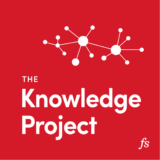Todd Tresidder took his own personal net worth from less than zero at 23, to self-made millionaire and retired at 35. When it comes to building wealth, ...
Kenji Lopez-Alt became a rock star of the food world by bringing science into the kitchen in a way that everyday cooks can appreciate. Then he dared to start ...
In this weeks episode of The Diary of a CEO, I sat down with Tobi Pearce, the CEO of SWEAT. Tobi describes SWEAT as the world’s biggest online digital gym, ...
Basecamp CEO and co-founder Jason Fried gives us a peek behind the scenes of his company and discusses his philosophy on doing great work, making a positive ...
.lightweight-accordion { border: 1px solid #ccc; border-radius: 4px; padding: 5px; margin: 5px 0; } .time { font-size: 0.875rem; /* Option 3: Using rem ...
Jessica Larrew and her husband Cliff have been reselling on Amazon for years. And though it started as a part-time side hustle, it turned into a serious ...
For years, Gary Cohn thought he’d be the next C.E.O. of Goldman Sachs. Instead, he became the “adult in the room” in a chaotic administration. Cohn talks about ...
It has been a crazy few travelling weeks for me so I do apologise about the delay in this episode. This week, I discuss the culture of winning. Some people ...
.lightweight-accordion { border: 1px solid #ccc; border-radius: 4px; padding: 5px; margin: 5px 0; } .time { font-size: 0.875rem; /* Option 3: Using rem ...
Marc Andre made over $1.1 million dollars from his photography hobby. But what’s interesting is that he never: got paid to take pictures sold any of his ...
The road to success is paved with failure, so you might as well learn to do it right. (Ep. 5 of the “How to Be Creative” series.)
Billionaire investor, author and co-founder of Oaktree Capital Howard Marks discusses risk assessment, how to think different than the crowd, and the three ...






